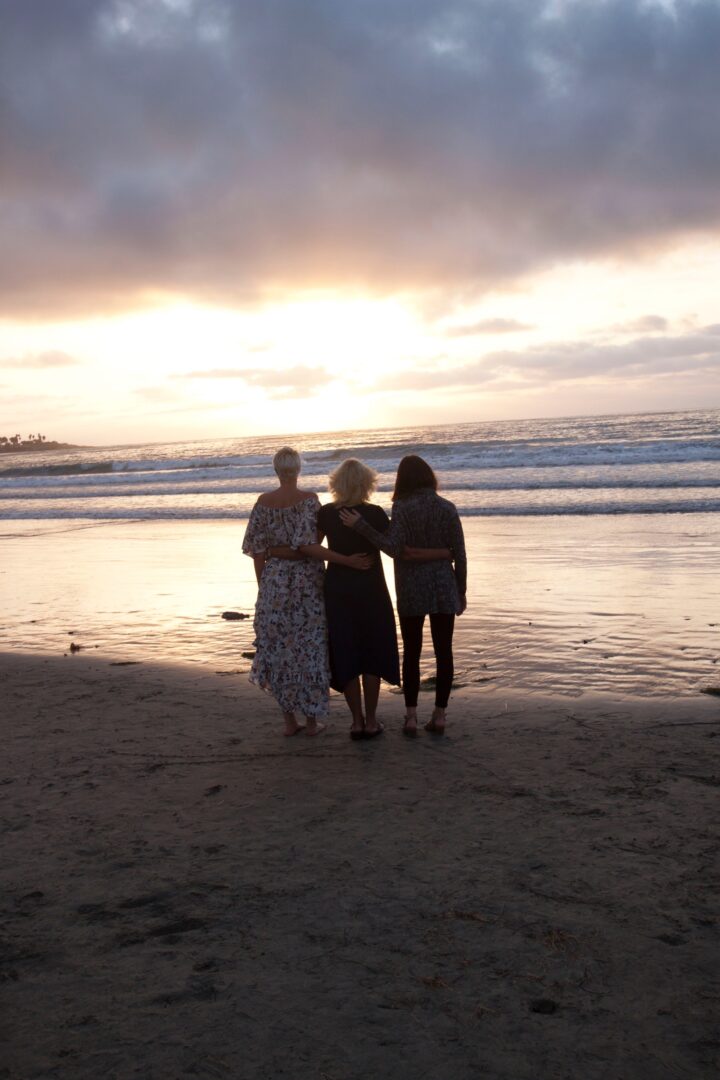We’re excited to introduce you to the always interesting and insightful Anne Richardson. We hope you’ll enjoy our conversation with Anne below.
Hi Anne, we’re so appreciative of you taking the time to share your nuggets of wisdom with our community. One of the topics we think is most important for folks looking to level up their lives is building up their self-confidence and self-esteem. Can you share how you developed your confidence?
I struggled with confidence and self-worth at times. Taking a risk was scary due to the fear of failure or rejection. Deep-seated feelings of “not enough” reined in my mind and heart. I wasn’t aware of why until I had a mid-life crisis. When I entered into therapy, I discovered how my childhood wounds affected me.
I was molested by my best friend’s father. There were a lot of us little girls in the neighborhood. It was like a Hansel and Gretel story. Fun, parties, dress-up, candy…and an evil witch. Or should I say, monster. I kept it a secret for a long time. This created shame, or feelings that something is wrong with me. I also had trust issues. With authority figures, God, and myself. This is when my healing took place.
Therapy was necessary and insightful, yet deeper healing has come from God. Engaging in various spiritual practices has helped me be more grounded as the beloved of God. Sadly, churches don’t stress the love God enough to the people. Instead, they can be more about sin management or obtaining knowledge about God. These behaviors are good, but miss the deeper message: “I am enough since I am the beloved of God and nothing can separate me from his love.
As I became stronger and more grounded, I felt nudged to share my story. Courage sprang forth and I started to use my voice. Then other survivors started sharing their stories with me. Then I gathered these stories, along with many spiritual practices that heal, and created a workbook called, “Not Alone.” For nine years, I have been leading these groups for women who have experienced physical, emotional or sexual trauma. Witnessing them become freer and more grounded fills my heart with joy.
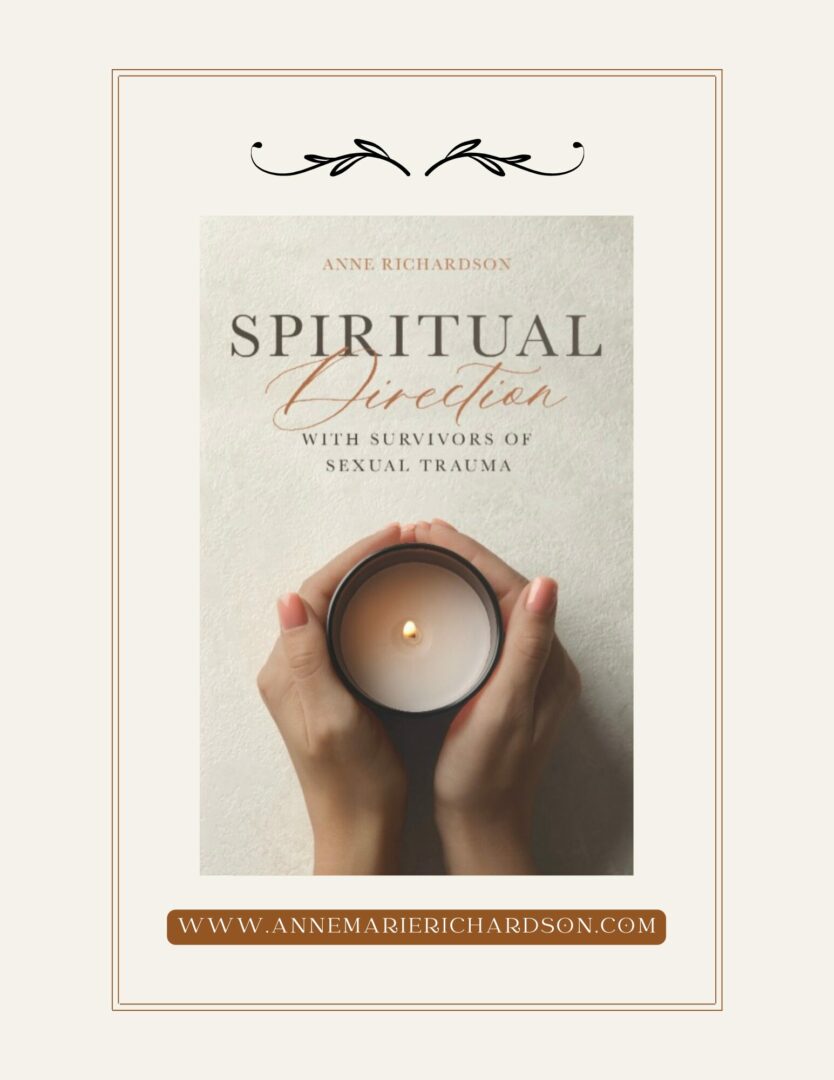
Thanks for sharing that. So, before we get any further into our conversation, can you tell our readers a bit about yourself and what you’re working on?
When I retired as an Audiologist, I became a spiritual director. This is more about accompanying someone on their spiritual journey than directing. Believing God is in all things in our lives, I listen, ask open-ended questions, and encourage as one explores their relationship with God. I moved from helping someone hear their outer world to listening to their inner world. Seeing others deepen their relationship God gives me much joy.
I have published several books on overcoming trauma and accompanying others on their healing journey.
For the past nine years, I have facilitated Not Alone Groups for women. This is a Christ-centered recovery process for women who have experienced physical, emotional, and sexual trauma. Although healing is a long process, there is usually a shift in one’s relationship with God and oneself by going through the group. Joy was raped at gunpoint and stuck in fear for thirty years. She experience a shift, releasing the power the rape still had over her. Today she is strong and confident, pursuing her dreams of sharing her story with others. And leading her own Not Alone Group. I love witnessing women become freer and live out their purpose.
Did you know that one in three women and one in six men will experience a sexual trauma in their lifetime? Sadly, it is that common. Many survivors have told me all the hurtful things that people have said and done to them when they try to share their story, even in the church. Although unintentional, most people don’t know what to say or do. And this is an uncomfortable topic. Seeing the need, I wrote a second “Not Alone” book to include guidance on how to accompany survivors. I offer workshops to church leaders and family members on what to say and do and what not to say and do.
My most recent book is, “Spiritual Direction with Survivors of Sexual Trauma.” Sadly, it often comes up in spiritual direction. People wonder why God allows this to happen. They feel abandoned by God. I always say,
“God does not cause trauma. People do.”
Recognizing the need, I have been offering training to my fellow spiritual directors and those in training programs. One of my passions now is to share my learnings and experiences with others. They, too, can learn how to accompany one with this sacred wound. The next trainings will be on July 10th, via Zoom, through Spiritual Directors International, and through my website in October of 2025. Exact date TBD.
I also co-created a new group with Lisa Becerra, called “Phasing Out of Trauma.” This is an open meeting for women who have had trauma. Currently, they meet on Monday evenings from 6:30-8:00 pm at Newbreak Church Tierrasanta. Women come together for support and receive teachings or spiritual practices that heal. For more information, please go to my website.
The next Not Alone group will be in person here in San Diego at the Spiritual Ministry Center in Ocean Beach. Meetings will take place from September 22nd to November 17th, on Monday evenings from 6:30 to 8:30 pm. For more information, please visit my website at www.annemarierichardson.com.
You are not alone.
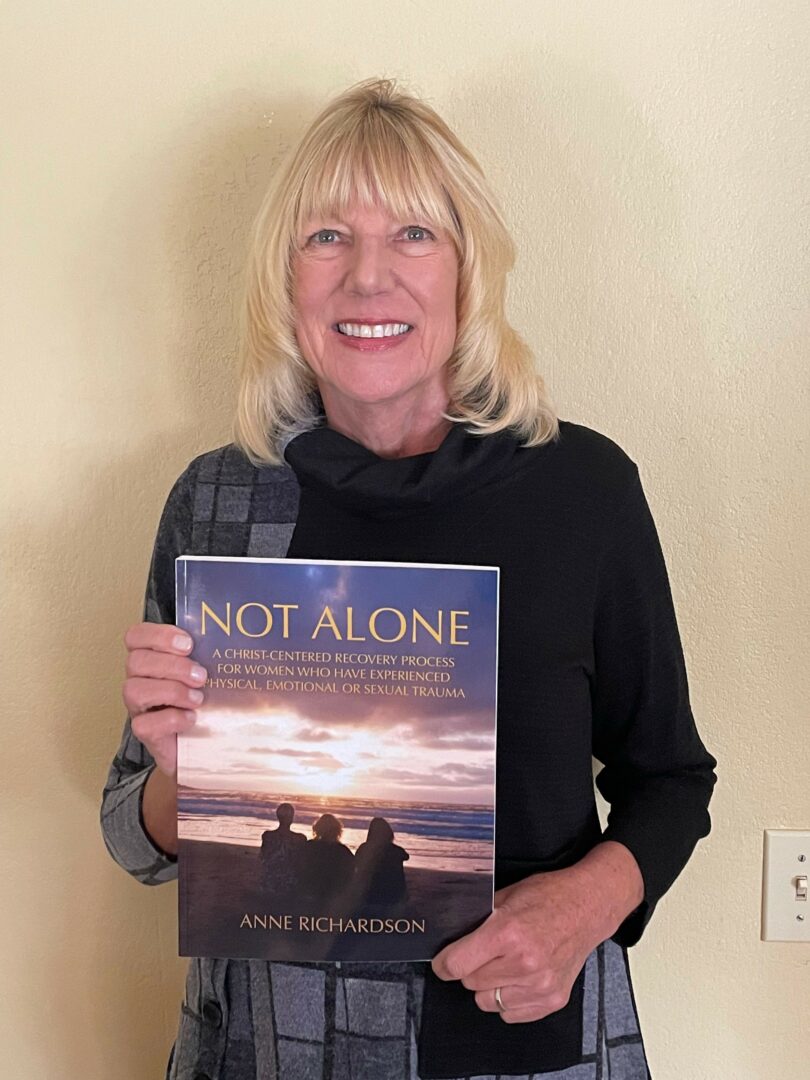
If you had to pick three qualities that are most important to develop, which three would you say matter most?
The three qualities, skills, and knowledge that had the most significant impact on my journey were courage, active listening, and an understanding of the effects of trauma.
It took courage to admit the molestation happened. To reach out and get help. Then, after a time, I shared my story, wrote books about it, and eventually, accompanied others so they could overcome their trauma.
Once I admitted the trauma happened, how it affected me, and realized it was not my fault, then I could take the step to seek help. People often feel that the abuse was their fault or that they somehow deserved it. Both of these are far from the truth. I always say, “Abuse has no Excuse.” Working with my psychologist, meeting with my spiritual director, and finding a group of supportive survivors were all valuable parts of my healing journey. The most healing was spending time with God, drawing ever so close into a loving relationship.
After a time of healing, it retook courage to share my story. I was so nervous. “What would people think??” Letting go of what others think becomes easier as I become stronger and more grounded in my identity as the beloved. When other survivors would tell me, “That happened to me,” I knew I was not alone. Then I felt nudged to write a book. “Who me?” “I can’t do that!” Well, I did! Joining a writing group, taking a class, and meeting with a coach all contributed to my accomplishment of this task. Leading Not Alone groups for women is now a life-giving experience. I come alive and feel a sense of joy when I see survivors become freer.
Listening is one of the most valuable skills a person needs when sitting with survivors of trauma. We live in a world where listening is becoming a lost art, and yet so needed when one is hurting. Listening was a natural skill for me, and yet I significantly improved by going through the two-year training for spiritual direction.
Being heard is priceless.
Understanding the effects of trauma was crucial to my work. Countless books and various groups I joined provided me with valuable insights. One group helped me overcome co-dependency. I took responsibility for people’s feelings. I was a “caretaker” to the point where I lost touch with my feelings and needs. I learned that when I step in to fix someone, I rob them of their dignity and take away their ability to make their own choices. Even if it means suffering from the consequences. Hopefully, we learn through our mistakes. We are only responsible for our feelings and the choices we make.
I also learned how trauma is stored in the brain and the body. Incorporating practices that include the body, mind, and heart is a holistic approach to healing.
If you are a survivor of trauma,
1. Take courage. Share your story with someone safe.
2. Find a skilled, trusted therapist.
3. Consider finding a spiritual director who understands trauma.
4. Join a support group.
5. Spend time with God who truly loves you more than you know.
You can discern later whether you’ll be able to help other survivors in some way or not. Not everyone feels called to do that. But you can become more confident, feel you are good enough, and fulfill your purpose. You can live with more peace, joy, love, and hope.
You are not alone.
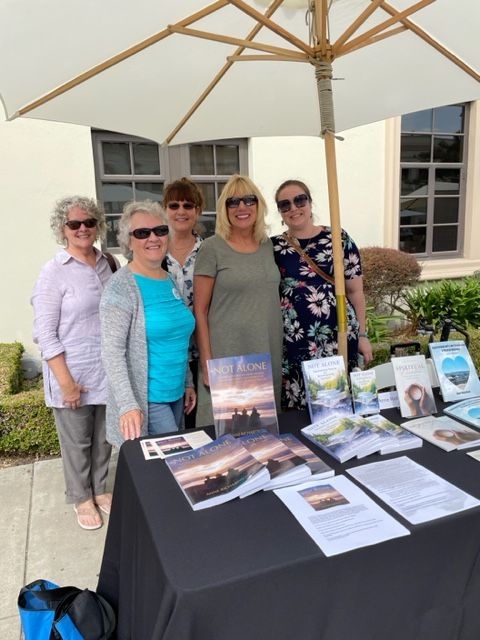
All the wisdom you’ve shared today is sincerely appreciated. Before we go, can you tell us about the main challenge you are currently facing?
I think the greatest obstacle is shame. Many survivors do not want to talk about it. And most people don’t want to hear it. Sexual abuse is on the rise. Although there is greater awareness today, thanks to organizations like the # MeToo movement, many people still keep it a secret and suffer in silence. It is common to believe it was their fault. Or like me, they deny that the abuse had any effect on them. Sexual abuse is not about sex. It is about power and control.
I want to convey this message to survivors: You don’t have to suffer in silence. You don’t have to stay in a victim mentality. Take courage to admit the abuse and explore how it has manifested in your life. Don’t let shame, fear, self-doubt, worry, anxiety, poor body image, or resentment hold you back. The good news is that there is help available from many sources. All you need to do is take the first step and tell your story.
I want to end by sharing one of my stories of overcoming shame.
I had long aspired to be a writer, but I lacked confidence in myself. When I was in my mid-thirties, I dreamed of being a travel writer. My uncle, a retired travel writer, gave me all kinds of tips. So my family and I set off for Yosemite. I wrote an article, along with pictures, of various sites to see and adventures to take. I sent it to many magazines and waited for their reply.
Rejection. Rejection. Rejection. So I quit.
Fast forward to 2019. A dear nun I know gave me a copy of Human Development Magazine and encouraged me to submit an article about my passion on accompanying survivors of trauma. I felt those feelings of rejection from the past well up inside me, but I somehow found the courage to try again.
Okay, let’s pause here for an important side story. When I was in my twenties, I went to the Louvre in Paris. I fell in love with the artwork by Georges de la Tour. My favorite painting was Saint Joseph, the Carpenter (1642). Here, Joseph is lovingly gazing at the young boy, Jesus, who is holding a candle. La Tour had a way of capturing the reflection of candlelight on their faces. So, I bought a print and hung it on my wall for years, until, after several moves, it became ruined and I had to discard it.
Back to 2019. My first article, “Accompany Survivors of Trauma,” was published in Human Development Magazine in the summer of 2019. And on the cover was Georges de la Tour’s Joseph, the Carpenter! Nobody knew about my love for La Tour except God, my husband, and I. Words can’t express how validated and loved I felt by God. Like Joseph gazing at Jesus, God was lovingly gazing at me.
Now I want to say to all of you: “Whatever your dream is or your call is, keep going. Don’t give up! You are definitely enough.”
Contact Info:
- Website: https://www.annemarierichardson.com
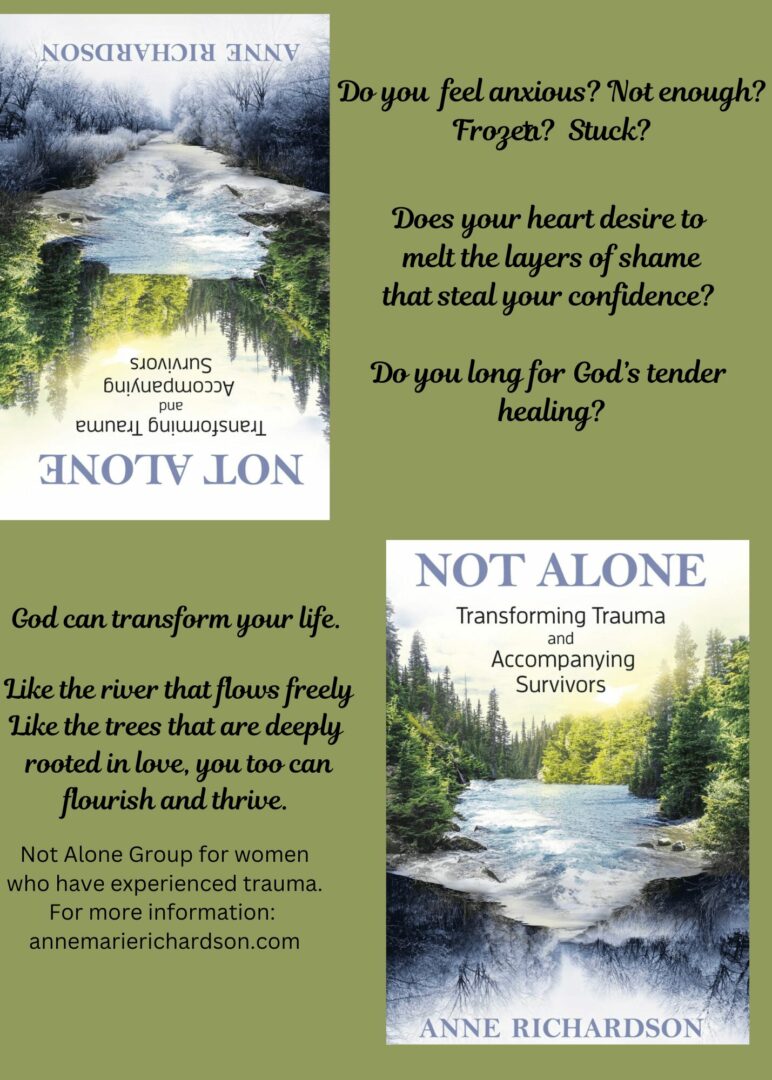
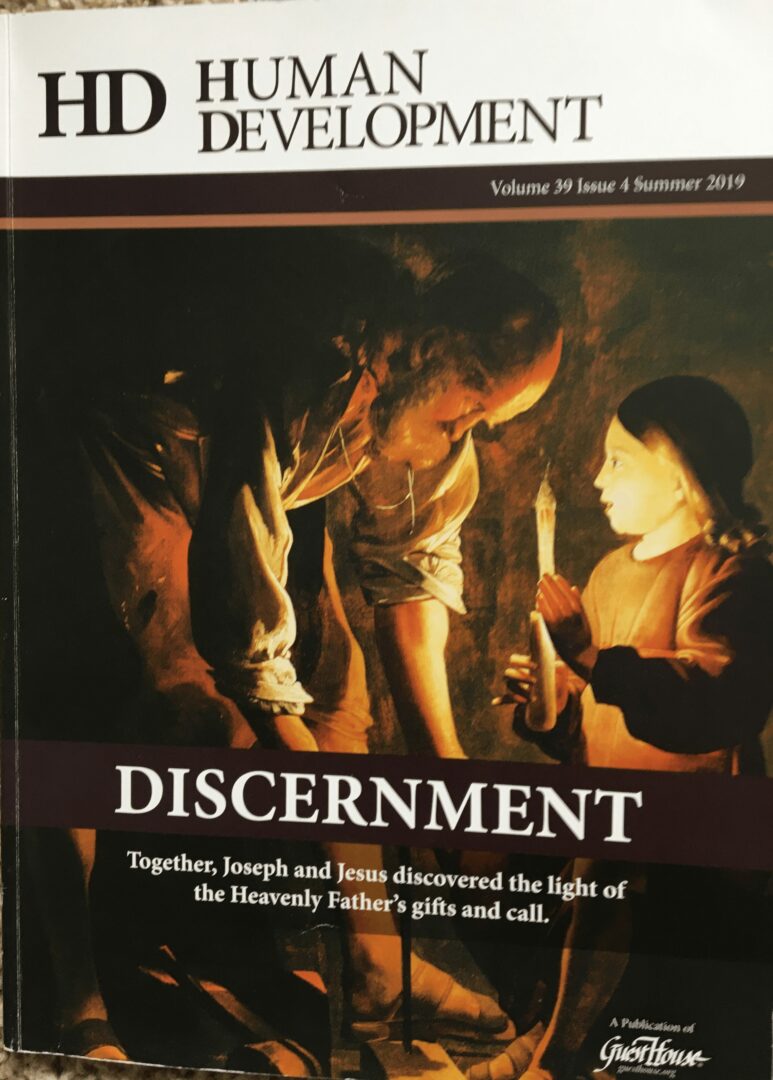
so if you or someone you know deserves recognition please let us know here.

